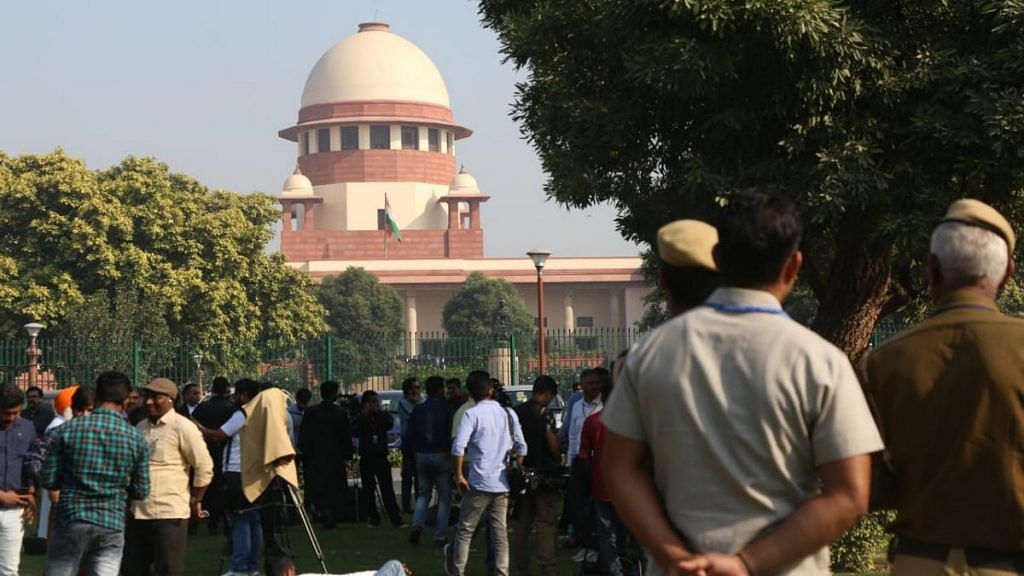It is well known that judges in India handle multifarious responsibilities outside their primary one of adjudication. While most of such duties are connected to the judicial institution and its maintenance, there is one responsibility that is unconnected to the judges’ role of adjudication — administering legal aid.
The ineffective administration of government-provided free legal representation in India is a significant barrier for socio-economically disadvantaged communities to access justice. The foremost problem in the existing framework is that judges are made responsible for the administration of legal aid. An overburdened Indian judiciary, with approximately 20,000 judges in trial courts, handling more than 30 million pending cases has led to massive delays in adjudication.
Yet, 38 per cent of these overworked judges are required to distribute their time between the adjudication of disputes, court logistics, scheduling of cases, and administration of legal aid. As a result, the administration of legal aid receives scant attention and is poorly managed.
Also read: Compulsory Retirement Order doesn’t create stigma, but judicial accountability for judges
Overburdened judges
A conversation with a former member secretary of a State Legal Services Authority (SLSA) highlighted the fact that the current legal aid framework is particularly burdensome for district judges, who most often hold posts in the District Legal Services Authorities (DLSAs) in addition to their judicial duties, and not on deputation. Furthermore, the lack of adequate support staff in this regard makes the job of the district judges even more difficult. As DLSAs are also required to report to their state counterpart on a monthly basis regarding legal services activities in their jurisdiction, this further adds to the amount of time that judges are able to dedicate to such bodies.
However, time and resource constraints are not the only reasons to re-imagine the way legal aid is administered in India. Judges lack the necessary managerial skills to oversee the provision of what is essentially a social welfare benefit.
A potential solution to this problem is the transfer of responsibility for legal aid from judges to a dedicated administrative body. While a judicial officer may oversee the working of these bodies, the day-to-day administration of their functions must be carried out by experienced managerial personnel.
An evaluation of international models for legal aid dispensation in Ontario, South Africa, New South Wales, and Scotland shows that a dedicated body of managerial personnel is best suited to ensure the effective provision of legal aid. People who possess an understanding of India’s socio-economic realities, the experience of running social welfare programmes, and the requisite managerial credentials, must be made responsible for administering legal aid.
Also read: Will increasing number of courts aid India’s judicial backlog? Data shows otherwise
Lack of feedback mechanism
The current system of legal aid also lacks effective monitoring and evaluation and feedback mechanisms to ensure that the service provided to beneficiaries is efficacious. The law mandates the establishment of monitoring committees to seek frequent reports and review the work of legal aid counsels.
However, studies have found that a mere 60 per cent of district-level authorities have established monitoring committees, and less than 25 per cent of them maintain the registers used to track the progress of legal aid cases. These committees, too, are presided over by judicial officers.
While the introduction of the Legal Aid Defence Council System is a step forward, the lack of institutional real-time monitoring of legal aid cases by the in-charge judicial officers greatly hampers the effective provision of legal aid services.
Also read: Start-ups and AI can rescue choked Indian courts
Digital way forward
With the digitisation of court records in India, it is now possible to monitor the real-time progress of cases. Information such as the stage of a case, the date of hearing, and the counsel involved are now available online, in an analysable format. Monitoring the provision of legal aid must, therefore, move from paper-based mechanisms to effectively tracking the progress of cases and the work of counsels through information technology. Establishing a technological system that can be synced with digital court records will enable the person in charge of a legal services authority to effectively monitor the progress of cases handled by legal aid counsels, allocate work amongst them, and allow for performance-based incentives to improve the delivery of legal aid services.
In the short term, this can assist district judges in monitoring legal aid services and holding counsels accountable, while also making it easier for them to collate data and submit monthly progress reports to state-level authorities. In the long term, if the legal aid framework undergoes an overhaul with respect to its management structure, judges can be given access to such real-time monitoring mechanisms to evaluate the provision of legal aid.
Without urgent reform to the legal aid framework, India’s justice delivery system will not only continue to perpetuate inequality and exclusion, but also continue to take a toll on overburdened judicial officers. Improving the efficacious administration and monitoring of legal aid is imperative to ensure that the justice system is able to effectively render justice.
The author is a Senior Research Fellow at DAKSH. She is a lawyer with a keen interest in access to justice and legal system reform. Views are personal.
DAKSH partners with ThePrint to write about necessary reforms to the functioning of India’s subordinate judiciary. Read all the articles in the series here.
